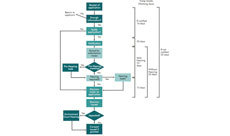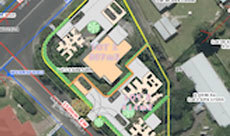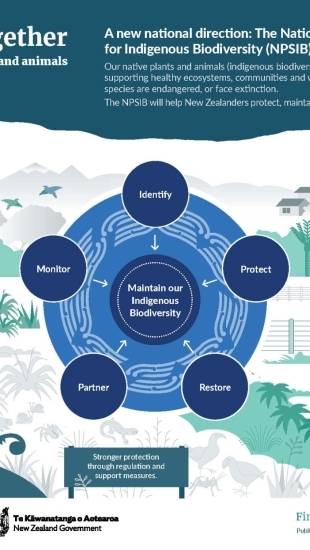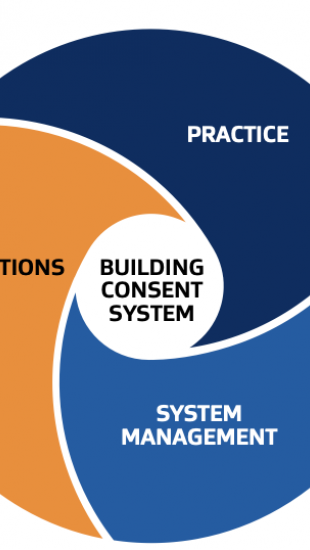RMA Bill 2019

Resource Management Amendment Bill 2019
Government Bill
180—1
Explanatory note
General policy statement
The overarching objectives of the Resource Management Amendment Bill (the Bill) are to reduce complexity, increase certainty, restore public participation opportunities, and improve Resource Management Act 1991 (RMA) processes. The Bill also supports the urgent need to improve freshwater management and outcomes in New Zealand.
The Bill principally amends the RMA and the Resource Legislation Amendment Act 2017 (RLAA). The Bill includes consequential amendments to the District Court Act 2016, Judicial Conduct Commissioner and Judicial Conduct Panel Act 2004, Remuneration Authority Act 1977, and Judicial Salaries and Allowances (2018/19) Determination 2018.
Proposals
This Bill repeals a number of changes made by the RLAA, and provides a number of improvements and clarifications to existing RMA processes in relation to resource consents, compliance and enforcement, and Environment Court matters.
Reducing complexity, increasing certainty, and restoring public participation by repealing changes made by RLAA
Reducing the powers of the Minister for Environment to prohibit or overturn local plan rules
Section 360D of the RMA enables regulations to prohibit or overturn rules in council plans that duplicate or overlap with other legislation. This Bill repeals the ability to make such regulations.
Removing preclusions on public notification and appeals for subdivision and residential activity resource consents, and restrictions on scope of appeals
Certain types of resource consent applications cannot currently be notified to the public for submissions, or appealed to the Environment Court by applicants or submitters. The Bill re-enables submissions and appeals when appropriate, for subdivision and residential activity applications, and removes the ability for regulations to prevent notification of other types of applications. The Bill also reintroduces the ability for submitters to appeal resource consent decisions regarding issues that were not included in their original submission.
Repealing regulation-making power for additional fast-track activities
District land use resource consent applications with a controlled activity status are subject to a 10-working-day “fast-track”
process, rather than the standard 20-working-day process. The Bill repeals the ability to fast-track other types or classes of activities, or to prescribe information requirements for fast-track applications, by regulation.
Reversing change to subdivision presumption
Under the original RMA, subdivision was presumed to be restricted unless explicitly permitted by a district plan rule. The RLAA reversed this, so that subdivision would be permitted unless explicitly restricted by a district plan. This Bill reinstates the original presumption, which existing district plans were initially formulated under.
Reinstating use of financial contributions except for notices of requirement lodged by Minister of Education or Minister of Defence
Consent authorities can currently require resource consent holders to pay financial contributions (money or land) as consent conditions in particular circumstances. The RLAA contains provisions to phase out financial contributions so that consent authorities would no longer be able to require these from April 2022 onwards. The Bill repeals the relevant RLAA provisions so that consent authorities can continue to charge financial contributions after April 2022.
In order to avoid a risk that unreasonable delays and costs are imposed on the development of Crown assets (including new State schools and defence facilities), the Bill restricts the ability to recommend or impose financial contribution conditions on any notices of requirement lodged by the Minister of Education or the Minister of Defence as a requiring authority.
Improving resource management processes and enforcement provisions
Enabling applicants to have processing of non-notified resource consent applications suspended
Resource consent applicants are currently able to suspend processing of their limited and publicly notified applications for up to 130 working days by request to the consent authority. The Bill enables applicants to also suspend processing of their non-notified applications for up to 20 working days.
Enabling consent authorities to suspend processing resource consent applications until fixed administrative charges are paid
Consent authorities are able to fix, in advance, charges payable by resource consent applicants to cover processing and administration costs. The Bill enables consent authorities to suspend their processing of resource consent applications, and pause the applicable statutory time frames, when fixed charges payable at lodgement or notification are outstanding (until they are paid).
Extending time period to lodge retrospective resource consent applications for emergency works
During states of emergency, persons exercising emergency powers can undertake particular activities without being subject to the general restrictions of the RMA. In these situations, the person must advise the relevant consent authority of their activity, and then apply retrospectively for any necessary resource consents within 20 working days. The Bill extends this period to 60 working days.
Enabling review of conditions of multiple resource consents concurrently
The Bill makes 3 amendments to provisions for review of consent conditions, in response to new regional plan rules relating to freshwater. The Bill—
· makes explicit that, in response to a rule, a regional council can review conditions of multiple consents concurrently:
· allows regional land use consents to be reviewed:
· allows these reviews to be initiated as soon as the relevant rule is operative (even if other rules in the plan are, for example, still under appeal).
Increasing maximum infringement fees under the RMA
The current maximum infringement fees that can be set in regulations under the RMA are $2,000 for stock exclusion infringement offences, and $1,000 for all other infringement offences. Specific infringement fees are set in the Resource Management (Infringement Offences) Regulations 1999. The Bill increases the maximum infringement fees that can be set in regulations under the RMA. The Bill includes the following proposed figures:
· $2,000 for natural persons; and
· $4,000 for all other persons (for example, companies or trusts).
Extending statutory limitation period to file charges for prosecutions under the RMA
Currently a 6-month statutory limitation period applies for a person to file charges for certain offences under the RMA. The Bill increases this to 12 months, which is consistent with the statutory limitation period under the Exclusive Economic Zone and Continental Shelf (Environmental Effects) Act 2012.
Enabling Environmental Protection Authority to take enforcement action under the RMA
Responsibility for enforcement under the RMA generally sits with local government. The Bill empowers the Environmental Protection Authority (EPA) to also undertake investigation and enforcement actions under the RMA. This is to enhance accountability and provide support for those currently responsible for RMA enforcement. Specifically, the Bill provides for the EPA to—
· authorise enforcement officers:
· apply to the Environment Court for declarations:
· commence investigation and enforcement actions where no local authority is involved:
· assist councils in investigation and enforcement actions already under way:
· intervene, and take over the investigation and enforcement functions of councils in relation to specific cases, with procedures to be followed in such cases:
· apply to the court to recover just and reasonable costs of investigations and prosecutions from convicted offenders:
· gather information from councils to exercise enforcement actions:
· report on the performance of its enforcement functions in its annual report, including the outcomes of enforcement actions it has taken (where it would not prejudice the maintenance of the law).
Protecting special advisors to Environment Court
The Environment Court can appoint special advisors to provide technical assistance in complex cases. Technical advisors in other jurisdictions are protected against legal proceedings for actions they take while acting in good faith in the performance of their duties. The Bill gives special advisors to the Environment Court similar protection from legal proceedings.
Change in title for Principal Environment Judge
The Bill changes the title of the Principal Environment Judge to Chief Environment Court Judge to better reflect the role and responsibilities of the head of a court.
Alternate Environment Judges
The Bill also makes 2 amendments relating to the appointment of alternate Environment Judges. The Bill—
· clarifies that acting Maori Land Court Judges and acting District Court Judges may be appointed as alternate Environment Judges:
· enables retired Environment Judges (who are not already Maori Land Court Judges or acting Maori Land Court Judges, District Court Judges or acting District Court Judges) to be appointed as alternate Environment Judges, if the Chief (formerly Principal) Environment Judge is satisfied that this is needed for the operation of the Environment Court.
Clarification of process for making national environmental standards
A single board of inquiry process may be followed to make a national environmental standard (NES), a national policy statement (NPS), or both. The RMA prescribes final procedural requirements for the relevant Minister to follow in response to a board of inquiry or other recommendation for an NPS, but not for an NES. The Bill makes a minor amendment to clarify that the same steps that apply to an NPS also apply to an NES.


















